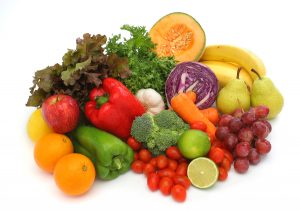By Eric Daw
For individuals over the age of 60, the benefits of eating healthy foods includes resistance to disease and illness, higher energy levels, increased mental acuteness, faster recuperation times and higher energy levels. Healthy eating does not have to be all about sacrifice and strict dieting. Think of it as a way to enjoy colorful, fresh foods, eating with friends and more creativity in the kitchen.
The road to healthy eating can be a bit confusing for those who are not accustomed to it. Below are a few tips and tricks to help you start your journey into the world of healthy eating and to promote optimal health.
1. Limit sodium content
Because many seniors suffer from high blood pressure, they should make sure to consume foods low in sodium. Restaurant food, frozen, and processed foods are usually high in sodium and should be avoid or used in moderation. Fruits and vegetables are naturally low in sodium, so try to incorporate several servings of each throughout the day.
2. Stay hydrated
Although seniors may not get as thirsty as they once did, their bodies still need the same amount of water. One of the main signs of dehydration is dark urine or excessive tiredness. Try to drink at least eight glasses of fresh water throughout the day. Foods that are high in water content, such as cucumbers and watermelon, may be consumed several times per week to aid in hydration.
3. Eat more fiber
Eating high fiber foods has more benefits than keeping your bowels regular. Fiber can also lower your risk of developing diabetes, stroke, and heart disease. The digestive system slows as you age, meaning it is important to supplement with foods high in dietary fiber in order to maintain regular bowel movements and overall health.
4. Eat high quality protein
Consuming high-quality protein has been proven to help boost your resistance to stress, anxiety and depression, and can even help you think more clearly. When combined with a strength-training routine, protein has been shown to reduce muscle loss and maintain physical function. Some examples of high quality protein are eggs, milk, and meat, which should be incorporated in your daily nutritional intake.
About the Author: Eric Daw is an active aging specialist and the owner of Omni Fitt. Omni Fitt is dedicated to the wellbeing, health and quality of life of people aged 55 and over. Eric motivates and empowers the older adult population to take responsibility for their independence, health and fitness through motivating and positive coaching experiences.

